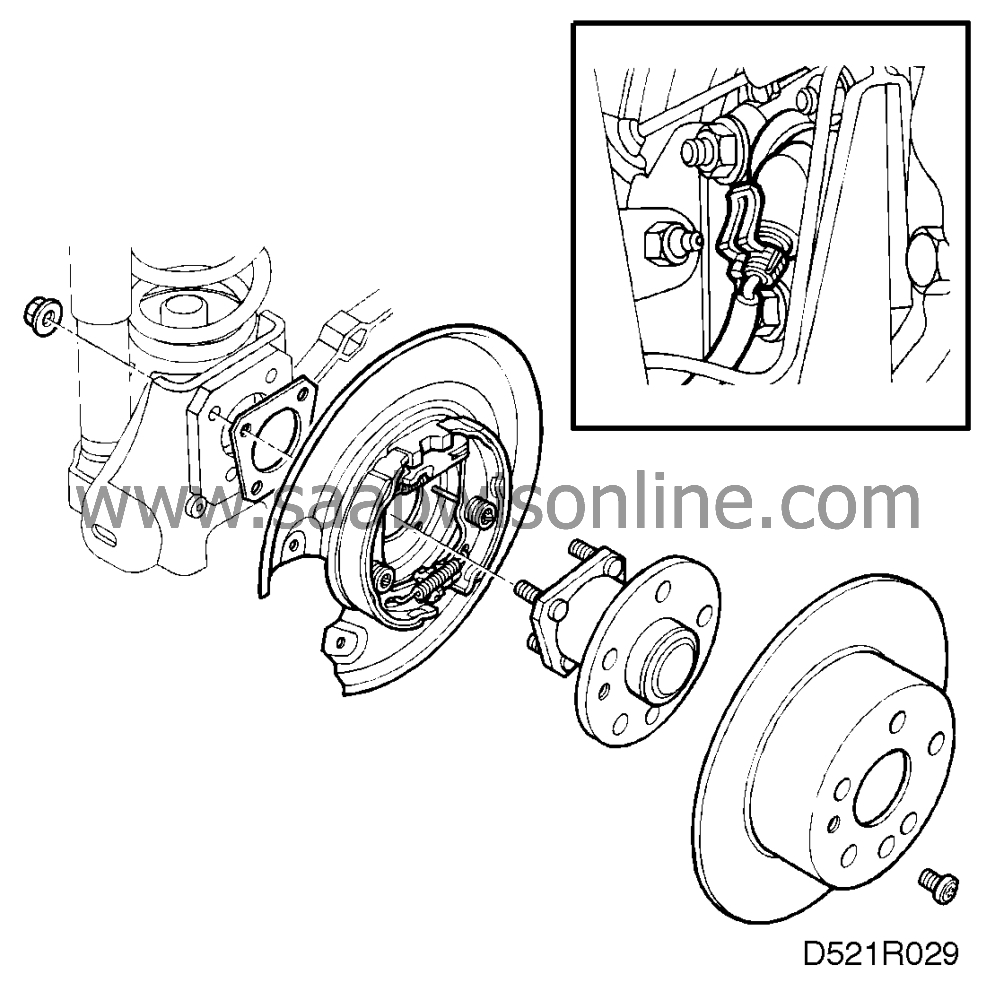Wheel sensors, rear
| Wheel sensors, rear |
| Removal |
| 1. |
Jack up the car and remove the
wheel.
|
|
| 2. |
Press the brake pistons back using a pair of slip joint pliers.
|
|
| 3. |
Undo the two brake caliper retaining screws. Remove the brake pipe from the
clips. Suspend the brake caliper by means of a cable tie.
|
|
| 4. |
Screw back the brake shoe adjuster.
|
|
| 5. |
Remove the lever's return spring.
|
|
| 6. |
Detach the handbrake cable from the lever.
|
|
| 7. |
Remove the brake disc retaining screw.
Remove the brake disc. |
|
| 8. |
Unplug the engine speed sensor connector.
|
|
| 9. |
Remove the four wheel hub retaining nuts.
|
|
| 10. |
Remove the wheel hub, backplate and spacer.
Detach the wheel hub from the backplate. |
|
| Fitting |

| 1. |
Clean the contact surfaces
using a wire brush.
|
|
| 2. |
Fit the back plate, spacer and new nuts on the wheel hub. Tighten the bolts,
using a torque wrench.
Tightening torque 50 Nm + 30 (36.9 lbf ft +30) |
|
| 3. |
Position the brake disc on the hub and tighten the locking bolts, using a torque
wrench. Apply thread locking compound to the bolts.
Tightening torque 10 Nm (7.4 lbf ft) |
|
| 4. |
Fit the handbrake cable to the lever.
|
|
| 5. |
Fit the lever's return spring and plug the connector into the wheel sensor.
|
|
| 6. |
Position the brake caliper and fit the retaining screws, first coating them with
thread locking compound.
Tightening torque 80 Nm (59 lbf ft) |
|
| 7. |
Press the brake pipe into the clips.
|
|
| 8. |
Using a screwdriver, unscrew the adjuster until the brake disc is
blocked.
|
|
| 9. |
Then screw the adjuster back until the brake disc can turn freely. It is important
to ensure that the brake shoes are adjusted back sufficiently to avoid rattle. This corresponds
to 7 notches.
|
|
| 10. |
Refit the wheel and lower the car to the floor.
Tighten the wheel bolts, using a torque wrench. Tightening torque, light alloy wheels: 117 Nm (86.6 lbf ft)Tightening torque, pressed steel wheels: 100 Nm (74 lbf ft) |
|
| 11. |
Depress the brake pedal to force out the brake
pads.
|
|



